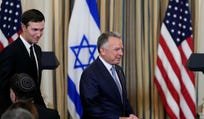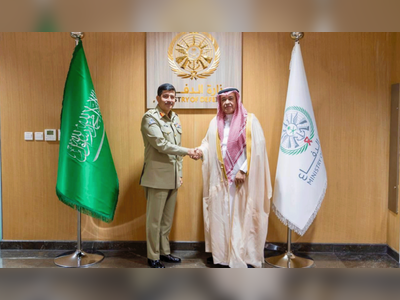
U.S., Saudi Arabia and Turkey Back New U.N. Draft Resolution Offering Path to Palestinian Statehood
Washington shares revised document for Gaza peace plan with key regional partners ahead of Security Council vote
The United States, joined by Saudi Arabia and Turkey among other regional actors, has backed a revised United Nations Security Council draft resolution linked to President Donald Trump’s Gaza peace initiative, offering a structured route to Palestinian statehood.
The measure, circulated in early November, seeks to authorise a two-year mandate for transitional governance in Gaza and an international stabilisation mission, and lays out a phased process culminating in a Palestinian state alongside Israel.
Under the draft text, a temporary body known as the “Board of Peace” would oversee the transition, and an International Stabilisation Force would be deployed to support civilian protection, border security, and the disarmament of non-state actors.
Support from regional states such as Egypt, Qatar, Saudi Arabia, Turkey and the United Arab Emirates underscores a shift in regional alignment towards Washington’s plan.
The resolution still faces significant hurdles in the Security Council, however, as Russia and China have voiced strong objections to key elements, particularly the Board of Peace concept they view as infringing on Palestinian sovereignty and lacking clarity for the Palestinian Authority’s role.
Their potential vetoes mean the U.S. must secure at least nine votes in favour and no negative votes from permanent members to adopt the text.
Saudi Arabia’s endorsement, in particular, signals Riyadh’s growing willingness to engage actively in the diplomatic framework envisioned by the U.S., one that ties Palestinian statehood to Gaza’s post-conflict transition and broader regional realignment.
Turkey’s backing adds further weight, reflecting Ankara’s interest in shaping the post-Gaza settlement architecture.
While Israel has engaged pragmatically with aspects of the plan, key Israeli security and sovereignty concerns remain.
The U.S. is seeking to balance Israel’s qualitative military edge with the broader push for Palestinian self-determination — a formula that will be tested in the weeks ahead as the Security Council deliberates the draft.
With pressure mounting and timelines attached to the transitional phase in Gaza, the success of the resolution would mark a major diplomatic milestone for the Trump administration and its Gulf partners.
At the same time, its failure could heighten the risk of fragmented regional approaches emerging outside the U.N. framework.
The measure, circulated in early November, seeks to authorise a two-year mandate for transitional governance in Gaza and an international stabilisation mission, and lays out a phased process culminating in a Palestinian state alongside Israel.
Under the draft text, a temporary body known as the “Board of Peace” would oversee the transition, and an International Stabilisation Force would be deployed to support civilian protection, border security, and the disarmament of non-state actors.
Support from regional states such as Egypt, Qatar, Saudi Arabia, Turkey and the United Arab Emirates underscores a shift in regional alignment towards Washington’s plan.
The resolution still faces significant hurdles in the Security Council, however, as Russia and China have voiced strong objections to key elements, particularly the Board of Peace concept they view as infringing on Palestinian sovereignty and lacking clarity for the Palestinian Authority’s role.
Their potential vetoes mean the U.S. must secure at least nine votes in favour and no negative votes from permanent members to adopt the text.
Saudi Arabia’s endorsement, in particular, signals Riyadh’s growing willingness to engage actively in the diplomatic framework envisioned by the U.S., one that ties Palestinian statehood to Gaza’s post-conflict transition and broader regional realignment.
Turkey’s backing adds further weight, reflecting Ankara’s interest in shaping the post-Gaza settlement architecture.
While Israel has engaged pragmatically with aspects of the plan, key Israeli security and sovereignty concerns remain.
The U.S. is seeking to balance Israel’s qualitative military edge with the broader push for Palestinian self-determination — a formula that will be tested in the weeks ahead as the Security Council deliberates the draft.
With pressure mounting and timelines attached to the transitional phase in Gaza, the success of the resolution would mark a major diplomatic milestone for the Trump administration and its Gulf partners.
At the same time, its failure could heighten the risk of fragmented regional approaches emerging outside the U.N. framework.










